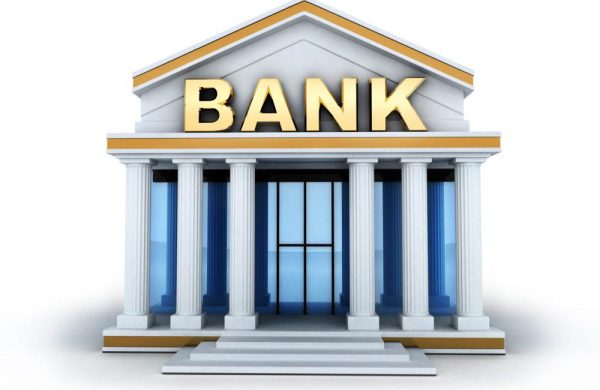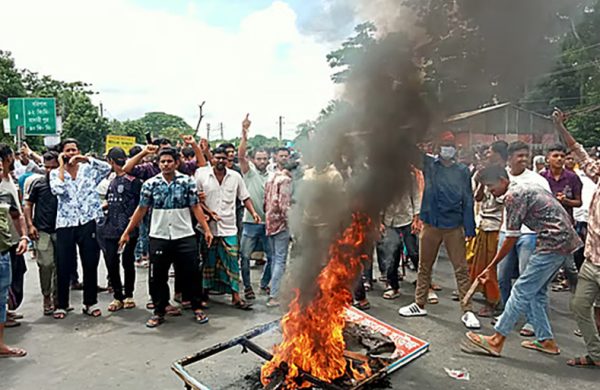12 banks paid no dividend despite profits last year
- Update Time : Thursday, July 10, 2025

Staff Correspondent:
Nineteen banks failed to pay any dividend to shareholders for 2024. While seven posted losses, the remaining 12 reported profits but were barred from dividend payouts due to inadequate capital and deferred provisioning for bad loans.
These lenders applied for permission from the Bangladesh Bank (BB) to issue dividends.
The central bank, however, rejected the requests, citing the Bank Company Act, which bars financially unsound institutions from declaring dividends.
While the restriction by the BB left many general investors frustrated, stock analysts backed the regulator’s decision, saying it prioritised long-term stability over short-term gains.
There are 36 listed banks in the country. Islami Bank Bangladesh Limited and Union Bank PLC have yet to publish their 2024 financial reports.
The 12 profit-making banks that were blocked from distributing dividends are: Al-Arafah Islami Bank, Exim Bank, Rupali Bank, Mercantile Bank, One Bank, Southeast Bank, NRB Bank, NRB Commercial Bank, Premier Bank, Standard Bank, United Commercial Bank (UCB), and South Bangla Agriculture and Commerce (SBAC) Bank.
The seven banks that incurred losses and were therefore unable to pay dividends are: AB Bank, First Security Islami Bank, Global Islami Bank, ICB Islamic Bank, IFIC Bank, National Bank, and Social Islami Bank.
To overcome the deficiencies in capital and provisioning, the BB instructed the 12 profit-making banks to submit realistic and time-bound action plans, approved by their respective boards.
Besides, the central bank tightened its rules on dividend payments further in March.
Currently, banks that obtain provisioning deferrals from the BB are not allowed to issue dividends. From next year, this restriction will also apply to banks whose non-performing loans cross 10 percent of their total loan books.
Kazi Monirul Islam, chief executive officer of Shanta Asset Management, supported the central bank’s decision on barring weak banks from dividend payouts.
“For banking business, a strong capital base is necessary. If they provide dividends without strengthening the capital base, it will impact their long-term sustainability,” he said.
Islam said that although stock investors were left disappointed, the banks would gain the ability to increase their deposit and loan portfolios once their capital base was strengthened.
In a similar tone, Asif Khan, president of CFA Society Bangladesh, said, “Many banks in Bangladesh have a weak capital base. To improve their capital base, it is important to retain as much profit as possible.”
He added that once these banks met the minimum capital requirements, they would be able to resume paying dividends. Raising fresh equity or issuing bonds could help fast-track their recovery.
Around 2010, banking stocks were highly sought-after on the Dhaka bourse due to their attractive dividend payouts.
But now, many have turned into low-return investments.
The decline in performance has weighed heavily on share prices.
Of the 36 listed banks, shares of 16 were trading below their face value, some as low as Tk 3 to Tk 8.6. Investor demand has plummeted, leaving several banks struggling to attract buyers.
Retail investors, holding onto these underperforming stocks, now face a dilemma. For many, there is no clear exit route.
Jakir Hossain, one such investor, said he had bought shares in listed banks trusting the financial reports and believing the institutions would not deceive investors.
“But the banks suddenly reported a huge amount of bad loans last year after the political changeover. So, their incomes plunged and they incurred losses,” he said.
At the end of March 2025, the total volume of bad loans in the banking sector reached a record Tk 420,335 crore, according to central bank data.
Hossain questioned the role of auditors, credit rating agencies, and independent directors. “If they had been diligent, general investors would not have incurred losses by investing in those banks,” he said.
He urged the government to hold bank directors accountable and take punitive measures against those responsible for mismanaging public funds and eroding investor trust.
















